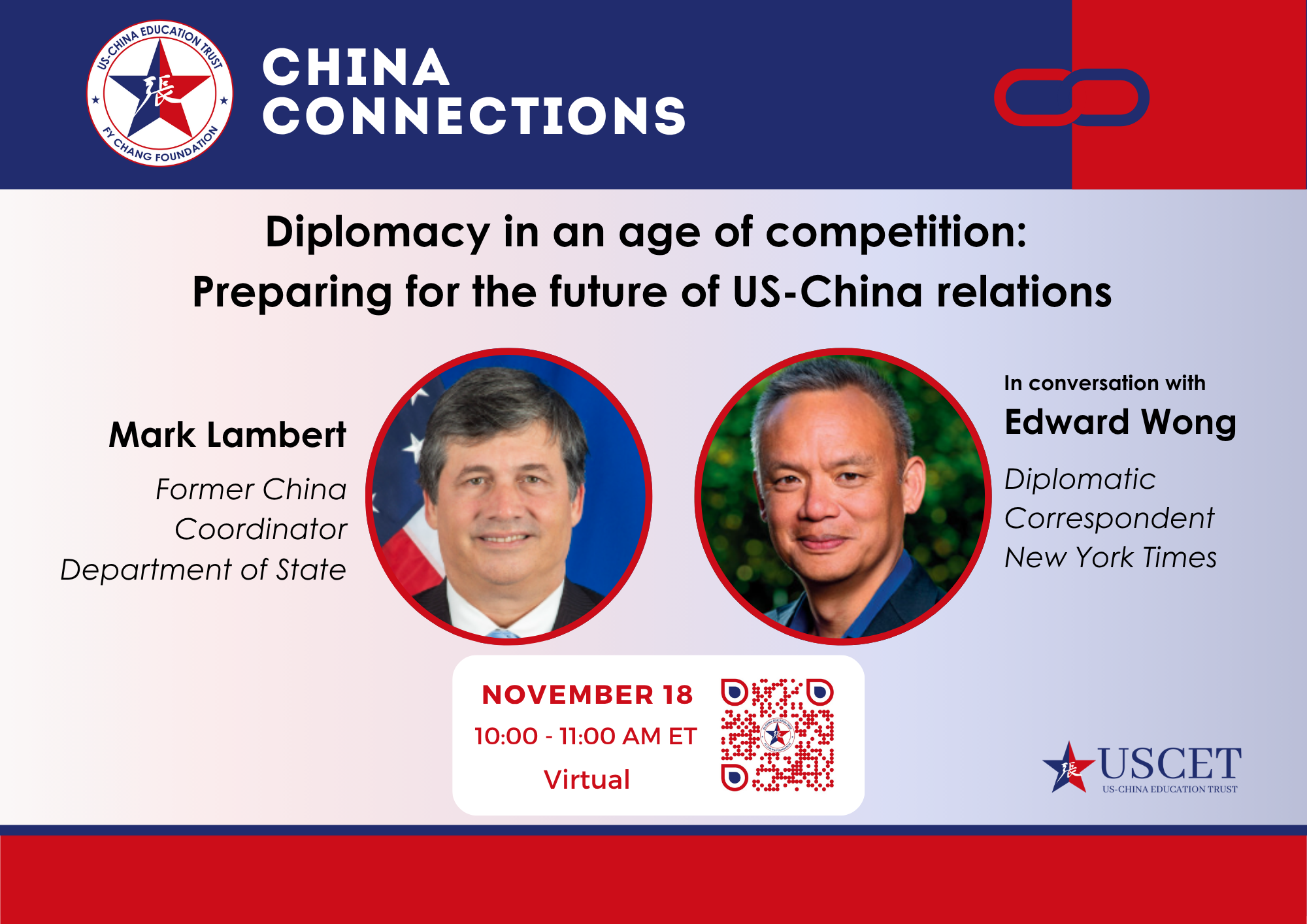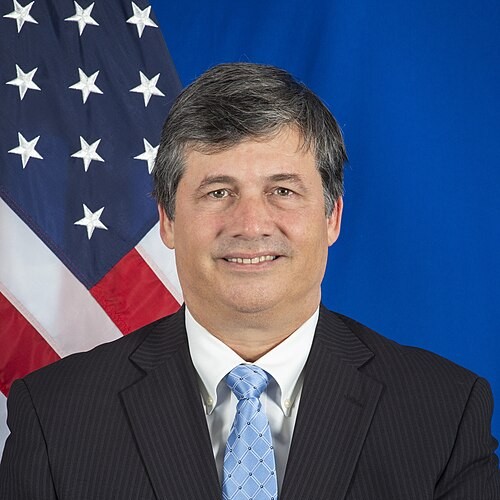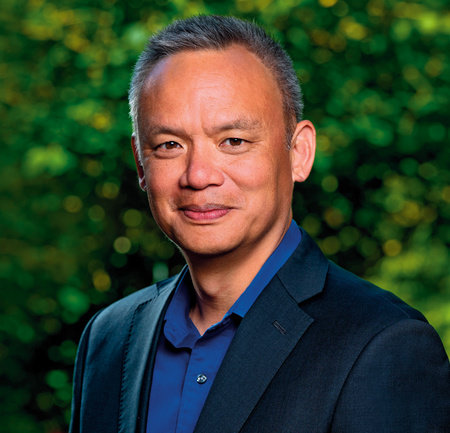
Tuesday, November 18 | 10:00 – 11:00 AM ET online via Zoom
The US-China Education Trust invites you to a conversation between seasoned U.S. diplomat Mark B. Lambert and award-winning New York Times diplomatic correspondent Edward Wong. The discussion will focus on the future of U.S.-China relations and the role of diplomacy in U.S.-China ties. The speakers will also provide advice for students and rising experts considering a career in the China field.
Throughout his career, Lambert has participated in numerous projects facilitating diplomatic ties between the U.S. and several Indo-Pacific countries and helped address precarious crises in the region through diplomatic means. His expertise extends from political and military affairs to human rights and natural disaster resilience. Wong has reported on U.S. diplomacy from Washington as well on U.S. diplomats and observed first-hand the developments in modern China while stationed in Beijing.
Join us on Tuesday, November 18, from 10:00 to 11:00 AM ET, to explore the role of diplomacy in navigating the ebbs and flows in the U.S.-China relationship.
Biographies
Speaker

Mark Baxter Lambert is the former State Department China Coordinator and Deputy Assistant Secretary in the Bureau of East Asia and Pacific Affairs. Previously, he served as Deputy Assistant Secretary for Japan, Korea, Mongolia, Australia, New Zealand, and the Pacific Islands. In 2020, Mark established the International Organizations Bureau’s office, aimed at protecting the UN’s integrity from authoritarianism. Throughout his career, managing political and military affairs, he has navigated high-risk crises and situations in places such as the South China Sea, the Taiwan Strait, and the Korean Peninsula. Mark has also brought Vietnam and Thailand closer to the U.S. through strategy and implementation.
Mark received a Meritorious Presidential Rank Award for helping with a plan to elect the leader of the World Intellectual Property Organization. He has also been awarded for his efforts bringing the U.S. and Vietnam closer, for his voluntary efforts responding to the 2011 Fukushima Daiichi nuclear disaster, for helping to shape the U.S. response to the 2004 Indian Ocean Tsunami, and for his work helping to resolve the 2001 EP-3 crisis involving a U.S. naval aircraft forced down on China’s Hainan Island. He received his bachelor’s degree in history and political science from Willamette University and Juris Doctor from Baylor Law School.
Moderator

Edward Wong is a diplomatic correspondent for the New York Times, reporting on global affairs, U.S. foreign policy, and the State Department. The issues he covers range from espionage to economic competition to environmental crises, while the multipolar world, authoritarian states, wars, and superpower rivalries involving the U.S. are his current focus. Previously, he was a China correspondent and Beijing bureau chief for nearly a decade. He is also the author of At the Edge of Empire: A Family’s Reckoning with China, a collection of memoir and reportage telling the story of modern China.
Early in his career, Edward received a Livingston Award and was on a team of Pulitzer Prize finalists for his war coverage in Iraq during the height of the conflict from 2003-07. He graduated from the University of Virginia with a bachelor’s degree in English Literature and from U.C. Berkeley with joint master’s degrees in journalism and international studies. He studied Mandarin at Beijing Language and Culture University, Taiwan University, and Middlebury College.
China Connections
Why should Americans be interested in China? USCET launches China Connections, a new monthly series hosting discussions with experts to explore their work, gain insights into current events, and learn what a career in the China field looks like today. These events highlight individuals with unique expertise on China to provide students, young professionals, and members of the public a deeper understanding of current events and increase American student interest in pursuing a focus on China. These events are mostly held in person at George Washington University with online engagement.
